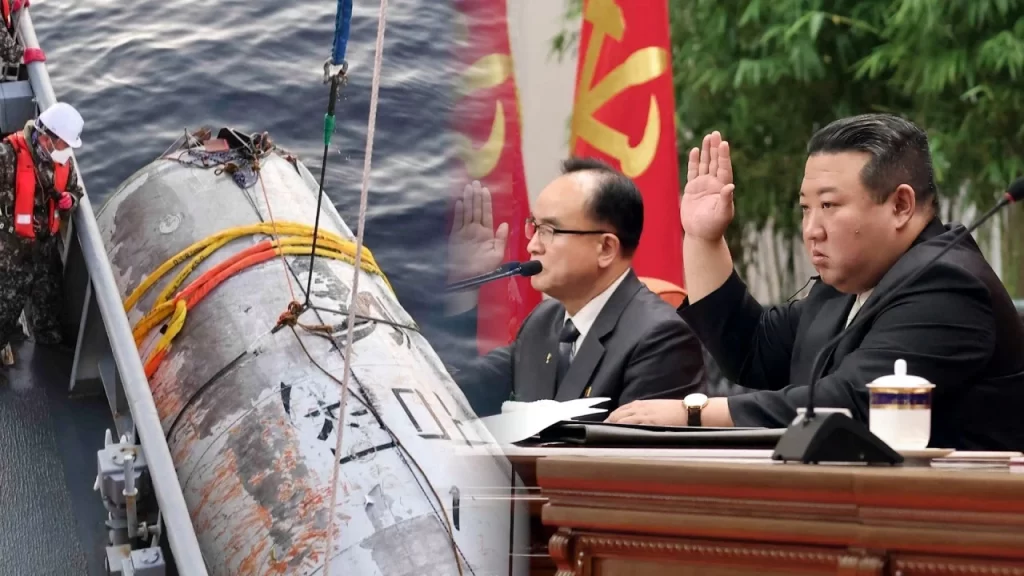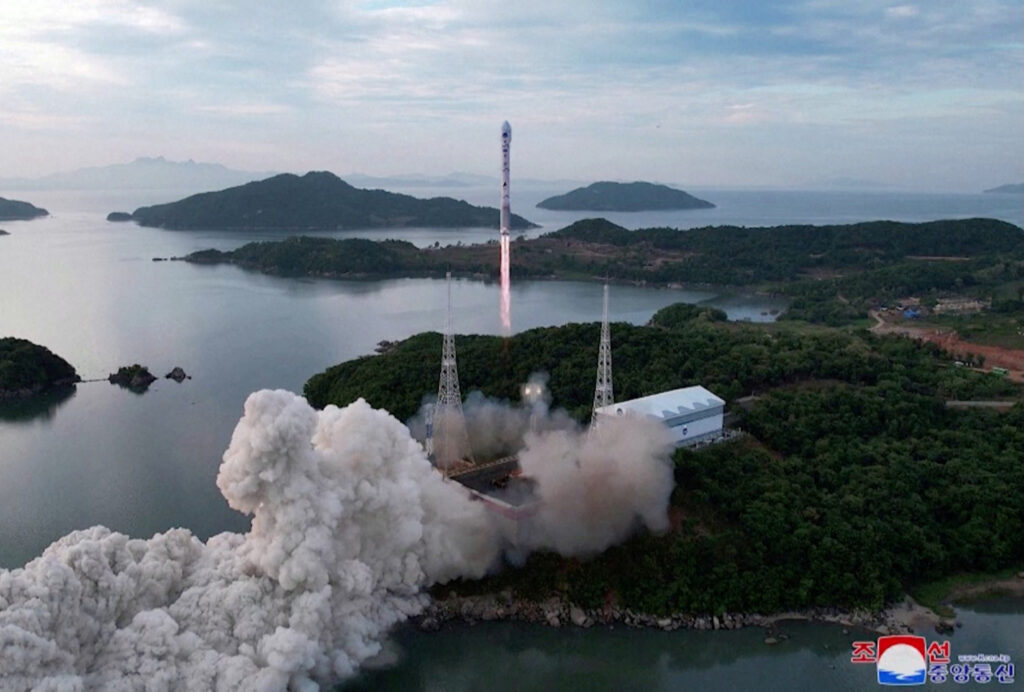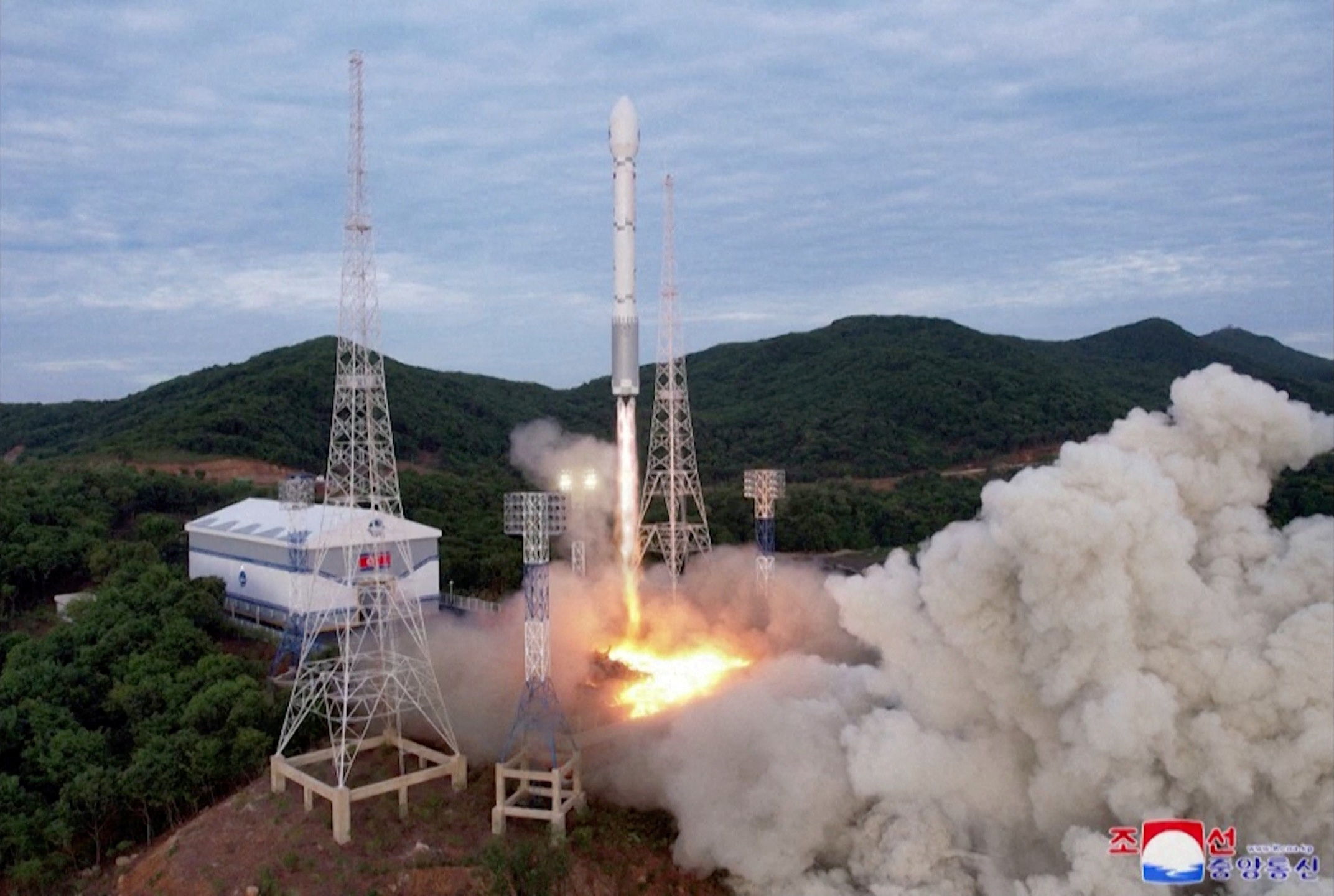Its ‘gravest failure,’ was North Korea’s military satellite launch, and the country has instructed employees to be ready for another attempt. After losing thrust as a result of the second-stage engine starting improperly, the rocket crashed into the water.
According to state-run media KCNA, North Korea’s military satellite launch was referred to as unsuccessful military satellite launch last month and was considered “gravest failure.”
The statement was made in a report on the most recent important party gathering of the nation, the 8th Central Committee of the Workers’ Party of Korea’s eighth expanded plenary meeting. According to the story, the employees were given instructions to examine the unsuccessful military satellite launch and get ready for another soon.

Pyongyang made an unusually direct acknowledgement of a technical issue following the launch failure: “After lacking momentum due to the unusual launching of the second-stage engine,” the North Korean rocket crashed into the ocean.
Kim and other top officials attended a three-day governing party conference that ended on Sunday. During that time, there was much discussion about the failed launch and North Korea’s attempts to modernise its stockpile of weapons.
When exactly North Korea could try a second launch was not specified. However, the spy service of South Korea had already informed legislators that it would probably take North Korea “more than several weeks” to figure out what went wrong with the failed launch.
Kim has made a public commitment to acquiring a number of high-tech military capabilities to counter what he deems American-led hostility, including surveillance satellites. Kim also desires a nuclear submarine, a solid-propellant intercontinental ballistic missile, a hypersonic missile, and a missile with multiple warheads.
Over a hundred missile tests have been conducted by North Korea since the beginning of 2022, some of which were connected to the creation of spy satellites and other potent weapons on Kim’s wish list.
North Korea conducted its first intercontinental ballistic missile test with solid fuel in April. Such missiles are additionally more mobile than liquid-fueled rockets and are more difficult for outsiders to recognise before launch because the fuel is already put inside of them.

The Politburo members discussed the “extremely deteriorating safety situation” in the area brought on by the “reckless war moves” of its adversaries during the party meeting, presumably alluding to the increased US-South Korea military exercises, according to a KCNA report. They were said to have unanimously endorsed vague preparations for retaliation.
In reaction to North Korea’s growing nuclear arsenal, the US and South Korea have increased their military exercises and have issued warnings that any use of nuclear weapons would lead to the overthrow of the Kim Jong Un regime.
In addition, North Korea has pushed for improved ties with Russia in response to the conflict in that country, blaming the US for the situation. Additionally, Moscow has charged the West with adopting a “hegemonic policy,” claiming that Russia’s use of force to defend itself in Ukraine was justifiable.
Along with the United States, China is North Korea’s key ally and source of economic support. China and the US are engaged in a heated geopolitical competition over trade, technology, and regional influence.


